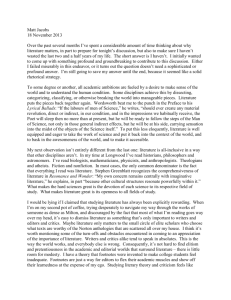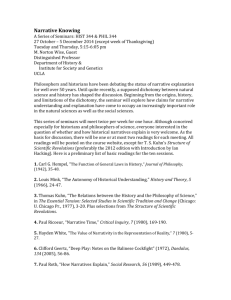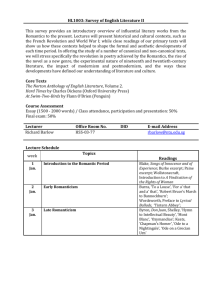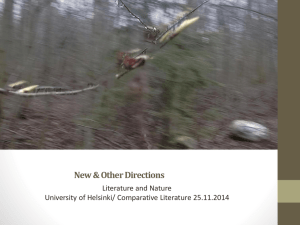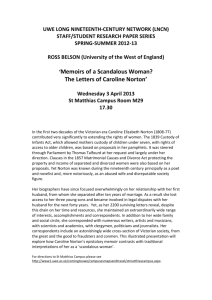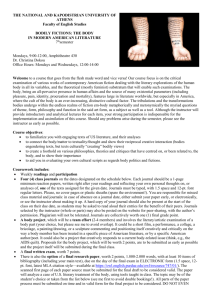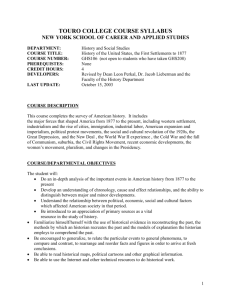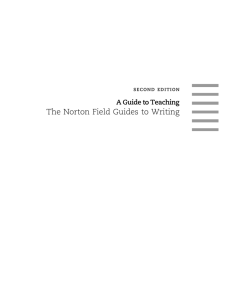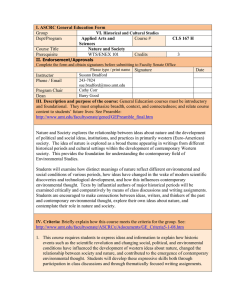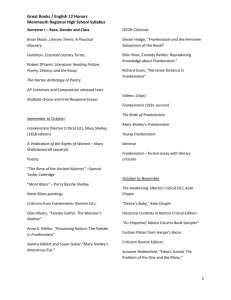hist730_Kern193_SP08.doc
advertisement
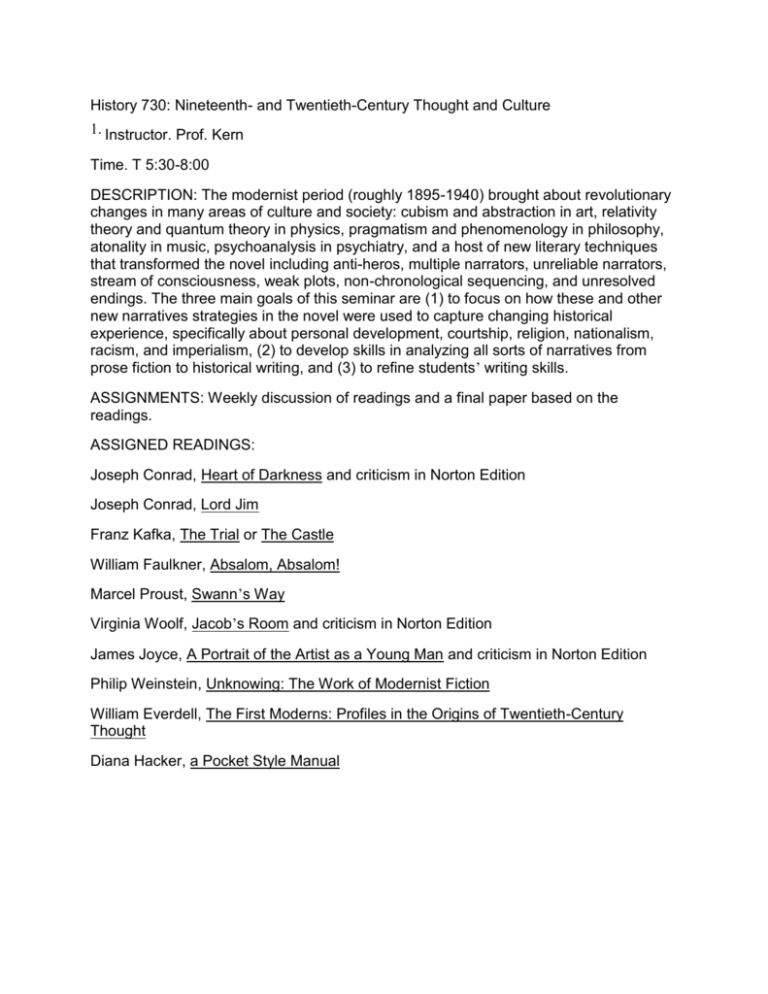
History 730: Nineteenth- and Twentieth-Century Thought and Culture 1. Instructor. Prof. Kern Time. T 5:30-8:00 DESCRIPTION: The modernist period (roughly 1895-1940) brought about revolutionary changes in many areas of culture and society: cubism and abstraction in art, relativity theory and quantum theory in physics, pragmatism and phenomenology in philosophy, atonality in music, psychoanalysis in psychiatry, and a host of new literary techniques that transformed the novel including anti-heros, multiple narrators, unreliable narrators, stream of consciousness, weak plots, non-chronological sequencing, and unresolved endings. The three main goals of this seminar are (1) to focus on how these and other new narratives strategies in the novel were used to capture changing historical experience, specifically about personal development, courtship, religion, nationalism, racism, and imperialism, (2) to develop skills in analyzing all sorts of narratives from prose fiction to historical writing, and (3) to refine students’ writing skills. ASSIGNMENTS: Weekly discussion of readings and a final paper based on the readings. ASSIGNED READINGS: Joseph Conrad, Heart of Darkness and criticism in Norton Edition Joseph Conrad, Lord Jim Franz Kafka, The Trial or The Castle William Faulkner, Absalom, Absalom! Marcel Proust, Swann’s Way Virginia Woolf, Jacob’s Room and criticism in Norton Edition James Joyce, A Portrait of the Artist as a Young Man and criticism in Norton Edition Philip Weinstein, Unknowing: The Work of Modernist Fiction William Everdell, The First Moderns: Profiles in the Origins of Twentieth-Century Thought Diana Hacker, a Pocket Style Manual
